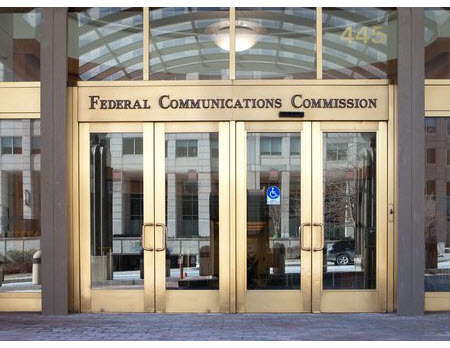FCC Tees Up Video Description Boost, Mics in TV Band
The smarter way to stay on top of the multichannel video marketplace. Sign up below.
You are now subscribed
Your newsletter sign-up was successful

Hardly had the FCC had the FCC finished voting on its public meeting agenda items Thursday (June 22), but it was circulating the items for its July 13 meeting, which includes boosting video description and microphone use in the TV bands.
Fresh off a meeting where all seven votes were unanimous, FCC Chairman Ajit Pai has teed up an eclectic mix, including tripling down on his efforts to prevent deceptive robocalls, demonstrated by the proposed record $120 million fine, one of the seven items voted at the meeting.
The agenda contained two more robocall-related items.
The issues of most interest to the broadcasting and cable crowd are a Report and Order increasing the required number of hours of video described programming on broadcast and MVPD services, and an Order on Reconsideration and a Further Notice of Proposed Rulemaking on the use of wireless mics, licensed and unlicensed, in the TV band and other bands.
Just where mics would call home after the broadcast incentive auction has been an ongoing issue.
The FCC last March approved a Notice of Proposed Rulemaking last March that expanded the number of hours required to be video described by the top five cable nets and top four broadcast nets from 50 to 87.5 hours per year, or a 75% increase, which is the maximum the statute allowed the FCC to bump it up at this time.
Under the rules, video description is only required of the top five nonbroadcast networks and the top four broadcast nets. But the item tentatively concludes that the requirement should be extended to the top 10 nonbroadcast networks as well, as well as the fifth largest broadcast network.
The smarter way to stay on top of the multichannel video marketplace. Sign up below.
It is not clear how much the item will have changed since that vote under a Democratic chairman, but Chairman Ajit Pai dissented in part from the item, saying the FCC was not authorized to expand to 10 cable nets or five broadcast nets because that would be a much larger increase than the 75% increase in programming for the top five and four nets the law allows.
Pai signaled Thursday that the increase would, indeed, be that allowable 75%. "Specifically, we’ll vote on increasing the number of hours of programming that covered broadcasters and video programmers must provide by 75%," he blogged.
Pai also took issue with the proposal's requirement that ABC, CBS. NBC and Fox remain in the top five whether or not they fall out of the top five in the ratings. commissioner Michael O'Rielly agreed with Pai that the FCC was exceeding its authority by expanding the number of networks.
Rounding out the agenda are items on radar services, updating equipment certifications, an item on rural call completion, another on unauthorized carrier charges, and the two on robocalls, one exploring ways for consumers to avoid unwanted calls, the other on better authenticating calls.
Contributing editor John Eggerton has been an editor and/or writer on media regulation, legislation and policy for over four decades, including covering the FCC, FTC, Congress, the major media trade associations, and the federal courts. In addition to Multichannel News and Broadcasting + Cable, his work has appeared in Radio World, TV Technology, TV Fax, This Week in Consumer Electronics, Variety and the Encyclopedia Britannica.

